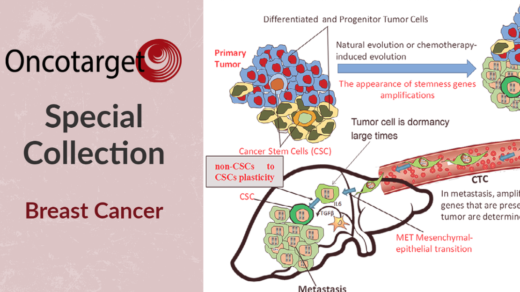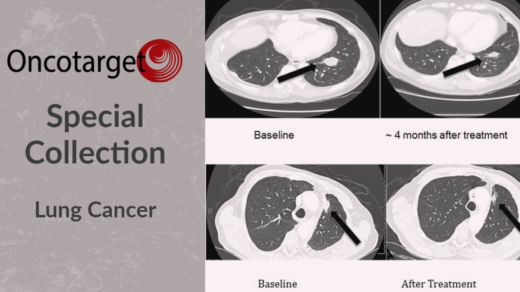In a new study, researchers aimed to elucidate the role of cancer stemness in the resistance of colorectal cancer cells to targeted therapies.

—
Colorectal cancer is the third most diagnosed cancer and the second leading cause of cancer-related deaths worldwide. It often starts in the colon or rectum with small, noncancerous clumps of cells called polyps, which can develop into cancer over time. Risk factors for colorectal cancer include age, family history, inflammatory bowel diseases, diet, smoking, and physical activity.
The development and progression of colorectal cancer are driven by the aberrant activation of multiple signaling pathways, such as EGFR (epidermal growth factor receptor), RAS-RAF, and PTEN-PI3K. Among these pathways, the mitogen-activated protein kinase (MAPK) and phosphatidylinositol 3-kinase (PI3K)/Akt/mTOR pathways are particularly important, as they are frequently mutated in colorectal cancer. Therapeutic targeting of these pathways has shown promise in suppressing tumor growth. However, cancer cells often develop resistance to targeted therapies, leading to treatment failure and disease progression.
In a new study, researchers Astha Lamichhane, Gary D. Luker, Seema Agarwal, and Hossein Tavana from The University of Akron, University of Michigan and Georgetown University aimed to elucidate the role of cancer stemness in the resistance of colorectal cancer cells to targeted therapies. Their research paper was published in Oncotarget on October 4, 2023, entitled, “Inhibiting BRAF/EGFR/MEK suppresses cancer stemness and drug resistance of primary colorectal cancer cells.”
The Study
One of the major mechanisms of drug resistance in cancer is the gain of stemness in cancer cells under drug pressure. Cancer stem cells (CSCs) are a small subpopulation of cells within a tumor with the ability to self-renew and differentiate into various cell types that constitute the tumor. CSCs are thought to be responsible for tumor initiation, progression, and resistance to therapy. Therefore, identifying approaches to target CSCs is crucial for improving treatment outcomes in colorectal cancer patients.
In the current study, the researchers developed spheroid cultures of patient-derived BRAFmut and KRASmut tumor cells and studied the resistance mechanisms to inhibition of the MAPK pathway. The researchers found that treatment with MAPK pathway inhibitors enriched the expression of CSC markers CD166, ALDH1A3, CD133, and LGR5 and activated the PI3K/Akt pathway in cancer cells. These findings suggest that the development of drug resistance in colorectal cancer is associated with the acquisition of a stem cell-like phenotype.
To overcome drug resistance mediated by cancer stemness, the researchers examined various combination treatments to block these activities. They found that a triple combination treatment targeting BRAF, EGFR, and MEK significantly reduced stemness and the activities of oncogenic signaling pathways in colorectal cancer cells. This triple combination treatment has shown promise in clinical trials, with response rates of 21% and 32% in patients with BRAFmut colorectal cancer. The researchers demonstrated that this combination treatment effectively suppressed the growth, stemness, and activities of several oncogenic signaling pathways in cancer cells.
“Our finding supports the hypothesis that CSCs confer drug resistance and suppressing stemness is a viable approach in BRAFmut colorectal cancer.”
Conclusion
Altogether, the researchers found that inhibiting BRAF, EGFR, and MEK in combination shows promise in suppressing cancer stemness and overcoming drug resistance in colorectal cancer cells. This approach targets the underlying mechanisms of resistance, providing a potential strategy for improving treatment outcomes in patients with colorectal cancer. Further research and clinical trials are needed to validate the efficacy and safety of this triple combination therapy.
“In conclusion, this study presented a model of cyclic drug treatment and recovery of patient-derived tumor spheroids and established that single-agent MEK inhibition of colorectal cancer cells lead to adaptive resistance of cancer cells through gain of stemness. A triple combination treatment used in a clinical trial of colorectal cancer patients effectively blocked growth, stemness, and activities of several oncogenic signaling pathways in cancer cells. Our approach to identify mechanisms of drug resistance of patient-derived cancer cells to targeted therapies and develop effective treatments is promising toward cancer precision medicine.”
Click here to read the full research paper in Oncotarget.
—
Oncotarget is an open-access, peer-reviewed journal that has published primarily oncology-focused research papers since 2010. These papers are available to readers (at no cost and free of subscription barriers) in a continuous publishing format at Oncotarget.com. Oncotarget is indexed/archived on MEDLINE / PMC / PubMed.
Click here to subscribe to Oncotarget publication updates.
For media inquiries, please contact media@impactjournals.com.



